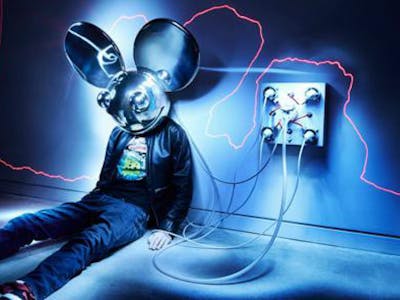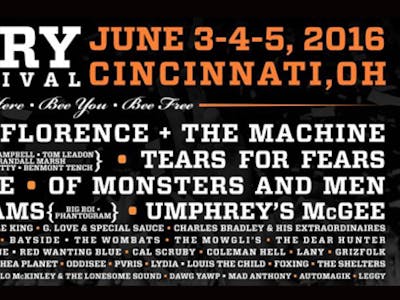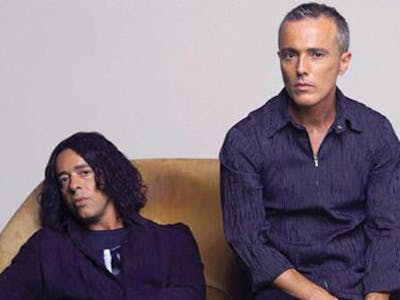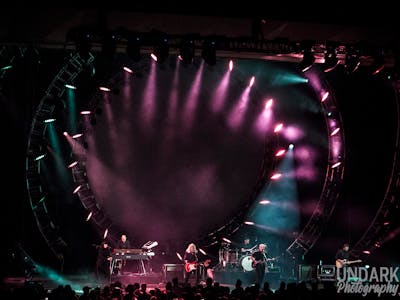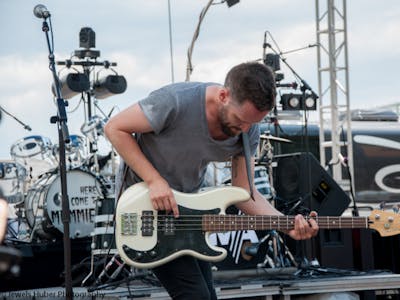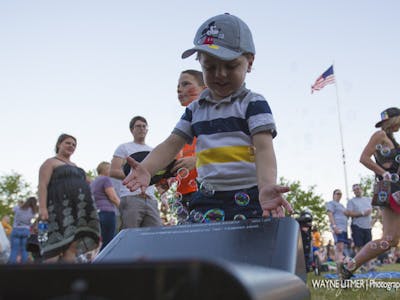Chart toppers Tears for Fears’ most recent studio album, 2004’s critically acclaimed Everybody Loves A Happy Ending, signaled a welcome return for one of the biggest and best-loved bands of the post-MTV age, as well as one of the most eagerly anticipated reunions in pop music history.
“This is the album that should have followed Seeds Of Love in many ways,” said singer-songwriter Roland Orzabal, who for the first time since the album’s 1989 release was rejoined by TFF co- founder Curt Smith. The results were standout tracks like “Closest Thing To Heaven,” “Call Me Mellow” and “Who Killed Tangerine.” They spent the next year and half on a world wide tour supporting the album playing to sold out crowds and enthusiastic fans.
In addition to successful U.S. tours in 2007 and 2009, Tears For Fears have toured Europe, performing in the renowned concert series Night Of The Proms with a seventy-five-piece orchestra and full choir. The shows, a combination of pop music and popular classical music, are the biggest annually organized indoor event in Europe. Over the last three years TFF played the series in Holland, Belgium, France, Spain and Germany.
Following his 2008 sophomore solo album Halfway, pleased, Smith released his latest single “All Is Love (Featuring Zoë Keating)” in January 2009, via his own KOOK Media imprint.
Orzabal has been keeping busy working on his first fictional novel.
An omnipresent fixture in the early days of music video, Tears For Fears brought Orzabal and Smith into the pop music spotlight via their 1983 debut album The Hurting, a sophisticated collection of inward-looking, electro-tinged pop songs including “Mad World” (recently covered to enormous international success by Gary Jules on the “Donnie Darko” soundtrack), “Pale Shelter” and “Change,” all Top 10 hits in the band’s British homeland. The Bath-based duo, longtime friends and prior members of youthful band Graduate, never anticipated the even greater success that would greet them next, however. 1985’s Songs From The Big Chair was an international sensation, boasting three Top 5 singles in the U.S. alone (dual No. 1’s “Everybody Wants To Rule The World” and “Shout,” and “Head Over Heels”) and catapulting the pair to superstardom.
In an attempt to satisfy the international demand for the band, the group then spent an extended period touring and promoting the new album around the world—a time that, as we would later see, would take its toll on the band in the days to come. Tears For Fears continued, and indeed when Big Chair’s follow-up Sowing The Seeds Of Love emerged four years later, it soared into the Top 10 and offered the No. 2 smash “The Seeds Of Love.” A joyous, profoundly Beatle-esque burst of rich melodic pop accompanied by an equally memorable video, it proved well worth the wait to those fans who’d been clamoring from more from Roland and Curt.
But the wait would be very long indeed. Following a charity performance at Knebworth in June 1990, Smith packed up and left Tears For Fears, moving to New York and eventually pursuing a solo career.
“The thing is, we had become hugely successful,” he says. “And I think with that comes a certain amount of pressure. And I’m talking personally here, but under pressure, I’m not very happy. I’m really not. And leaving was driven by pure unhappiness. I wasn’t enjoying it, it wasn’t doing anything for me anymore. I went through a marriage split-up at that point in time—I’d met somebody in America, my now wife, and we’d fallen in love and I wanted to move to America. I wanted to move to New York, I wanted to get away from England. Basically, personally, I wanted
to start a new life, is what I wanted. And to do that, Tears For Fears at that point couldn’t be part of that equation.”
With Orzabal solely at the helm, TFF continued, releasing three additional albums—Elemental (1993), Raoul And The Kings Of Spain (1995), and Saturnine, Martial and Lunatic (1996)—and touring internationally to promote them. By 1996, things came to a head, he recalls. “It was South America, and we were playing Colombia, and it was a tough trip,” he says. “Because Tears For Fears had had no success in Colombia since 1983, so they were promoting the show with hits from the very first album. It was depressing. And so going onstage I knew what my job was—just to make everyone go crazy. And after an hour-and-a-half they were going crazy, and I was singing “Shout” as an encore--and I thought, “I’ve had enough of this.”
Orzabal, who had two young sons at home in Bath, then did “the semi-retirement thing,” working at home on technology-based music and in 1999 co-producing a solo album by Icelandic singer Emiliana Torrini. Finally deciding to release the music he’d been working on, his first solo album Tomcats Screaming Outside hit American streets—as extremely bad luck would have it---on September 11, 2001. “Fortunate timing,” he now notes with irony.
Meanwhile, Curt Smith was getting on with his new life stateside. He made a solo album (“which I hated,” says he) for Polygram, hosted shows for MTV, started a syndicated college radio show, and, significantly, found an able music partner in guitarist/songwriter Charlton Pettus, with whom he formed the group Mayfield. “I guess I got the bug again,” he says. “We started writing songs and then he persuaded me to start playing. So I just started playing clubs in New York and I had the best time ever. Because I would leave my apartment, walk to the club, play, and then walk home. It was basically rekindling my love of music, which was kind of for the right reasons—you do it because you actually want to do it, as opposed it just being a business, which is the side I didn’t really like.”
Still out on his own in the U.K., Roland notes, “every time I walked into a record company with any music, they were going, `Oh, this is great! Can you get back together with Curt?’ It was just on and on and on--market forces, and that kind of thing.” Finally, the inevitable occurred—Curt and Roland again met, and the meeting was good. “We’ve always had business interests which have carried on after we split in’90,” says Roland. “So we’re always signing off on things together anyway. We have mutual friends, and it was just a matter of time, really, before so much water passed under the bridge. And it was like--well, what are we worried about? Let’s start chatting and see where it goes.”
Where it went is into the heart of Everybody Loves A Happy Ending, a title the pair couldn’t help but hang on their new album, and an inescapable truism their reunion solidly reinforces. The point was driven home, the pair recalls, by the ease with which they completed “Closest Thing To Heaven,” their first songwriting collaboration in years. “That’s one of those songs that came in a day,” says Curt, “from the start of playing it to virtually finishing it, bar all the lyrics, it was done.”
Memorable melodies filled the songs of Everybody Loves A Happy Ending, and those who heard the Beatles in Roland and Curt’s previous work together heard it again... It’s inescapable. `When we did `Sowing The Seeds Of Love’ we were doing Lennon,” says Roland. “And I would say the main influence for this album was McCartney. Because,” he grins, “I think McCartney is the new Lennon.”
Tears For Fears continues to sell out shows throughout the world, and Orzabal and Smith maintain their status as one of pop music’s more productive musical collaborations.
